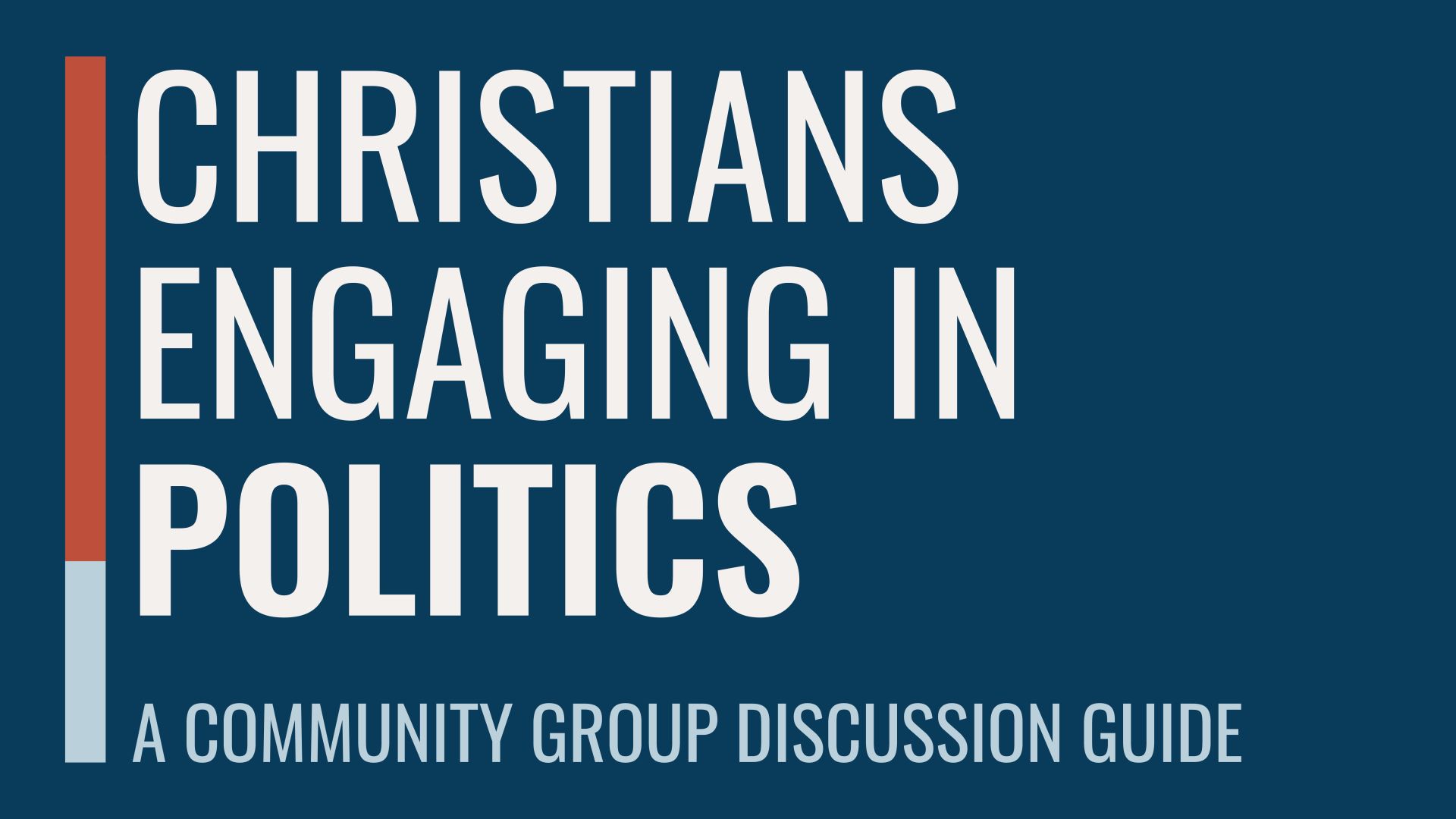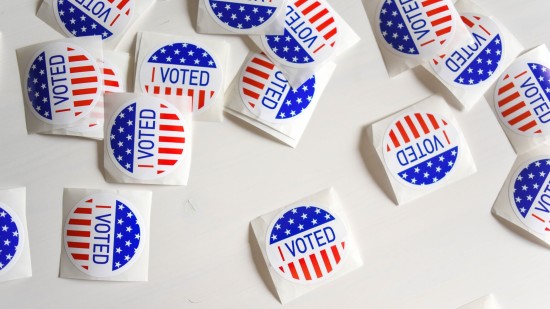“But seek the welfare of the city where I have sent you into exile, and pray to the Lord on its behalf, for in its welfare you will find your welfare.” (Jeremiah 29:7)
Christians should not be afraid to engage in politics. Throughout history, God’s people have led, submitted to, prayed for, and occasionally rebelled against the governments of their day. Their goal should be the same as our goal today: to glorify God by seeking the welfare of the society we live in by bringing a biblical worldview to laws, policies, justice systems, and administrations. Since we live in a time and place where our government leaders are elected, we believe voting (and voting wisely) is one way to “love your neighbor” (Mark 12:31) by choosing candidates who best promote peace, prosperity, and justice in our city, state, and nation.
Believers should not only engage in politics, but we should also engage with each other to process through important voting decisions. Far from being an “off-limits” topic that is too divisive to talk about, politics is something that we should be able to discuss in community, providing each other with wise counsel from God’s Word. This discussion guide is meant to help your community group honestly and graciously dialogue about politics in advance of an election.
Maintaining Unity
When talking about politics in community, it is important to know that you can disagree and still live at peace with each other. Political views largely fall in the category of “convictions” or “opinions”; we are typically not voting on the essentials of the faith. Just because somebody feels convinced that they should vote differently than you does not mean that they are less committed in their convictions. Recognize that other godly people can differ from your perspective without necessarily being “wrong.” In areas of personal conviction, being “one” needs to be more important than being “right” (John 17:20-23). Thankfully, Romans 14 and 15 give us a model for how to interact with each other when this is the case:
- Do not “quarrel over opinions,” but rather welcome those who disagree with you, just as Christ has welcomed us (Romans 14:1-4).
- Pray that every believer would be fully convinced in their own mind and honor God in their decisions (Romans 14:5).
- Assume the best of other believers and trust that they are making decisions for the glory of God (Romans 14:6-9).
- Remember that each of us will be held accountable for our own actions (Romans 14:10-12).
- Prevent your freedom of conscience from negatively impacting the faith of weaker believers (Romans 14:13-15).
- Do not “destroy the work of God” for matters of conscience. Rather, “pursue what makes for peace and mutual upbuilding” (Romans 14:16-21).
- Following Christ’s example, put others first, and “bear with the failings of the weak” (Romans 15:1-6).
Discussing in Community
With that in mind, here are questions you can discuss in community to help you understand each other, understand the issues, and make wise voting decisions. The goal is to sharpen each other, in love, as we listen to what the Bible, the Holy Spirit, and godly counsel have to say about the candidates or questions on the ballot.
- Do you feel comfortable discussing political issues or sharing your voting choices? What fears do you have? What past experiences contribute to those fears?
- Are you able to understand the perspectives of those who you disagree with politically? Why or why not?
- What are some common stereotypes about Republican or Democratic voters? Are those stereotypes accurate? How might they be unhelpful or bothersome?
- What biblical principles inform your political opinions? How might the Mosaic Law, or God’s instructions to Israel through Moses, be helpful for understanding His will regarding our nation’s laws?
- What are the most critical issues influencing your political views and voting decisions? (For example: pro-life vs. pro-choice, the economy, caring for the vulnerable, immigration, racial equality, gender issues, party platforms, candidate character and personalities, etc.) What does God’s Word say about those specific issues? Where is the Bible flexible on those issues, and where is it definitive?
- What issues or stances would disqualify a candidate from your consideration? Are those reasons informed by Scripture?
- How informed are you on local election candidates and issues? Why might local elections be just as important (or sometimes even more important) than national elections?
- Considering the two-party system in the United States, does a vote for either party mean that you have to fully support that party’s policies on every issue?
- How are you wrestling with your decision of which candidates to vote for? Pray together for wisdom and discernment.
It is true that a Christian’s hope is in Christ and not the government; however, it is entirely biblical for Christians to engage in politics. Remember that our King is Jesus, our platform is the Word of God, and we are “ambassadors for Christ” and ministers of reconciliation (2 Corinthians 5:18-20).
For more information and resources on how to vote, visit watermark.org/vote.


